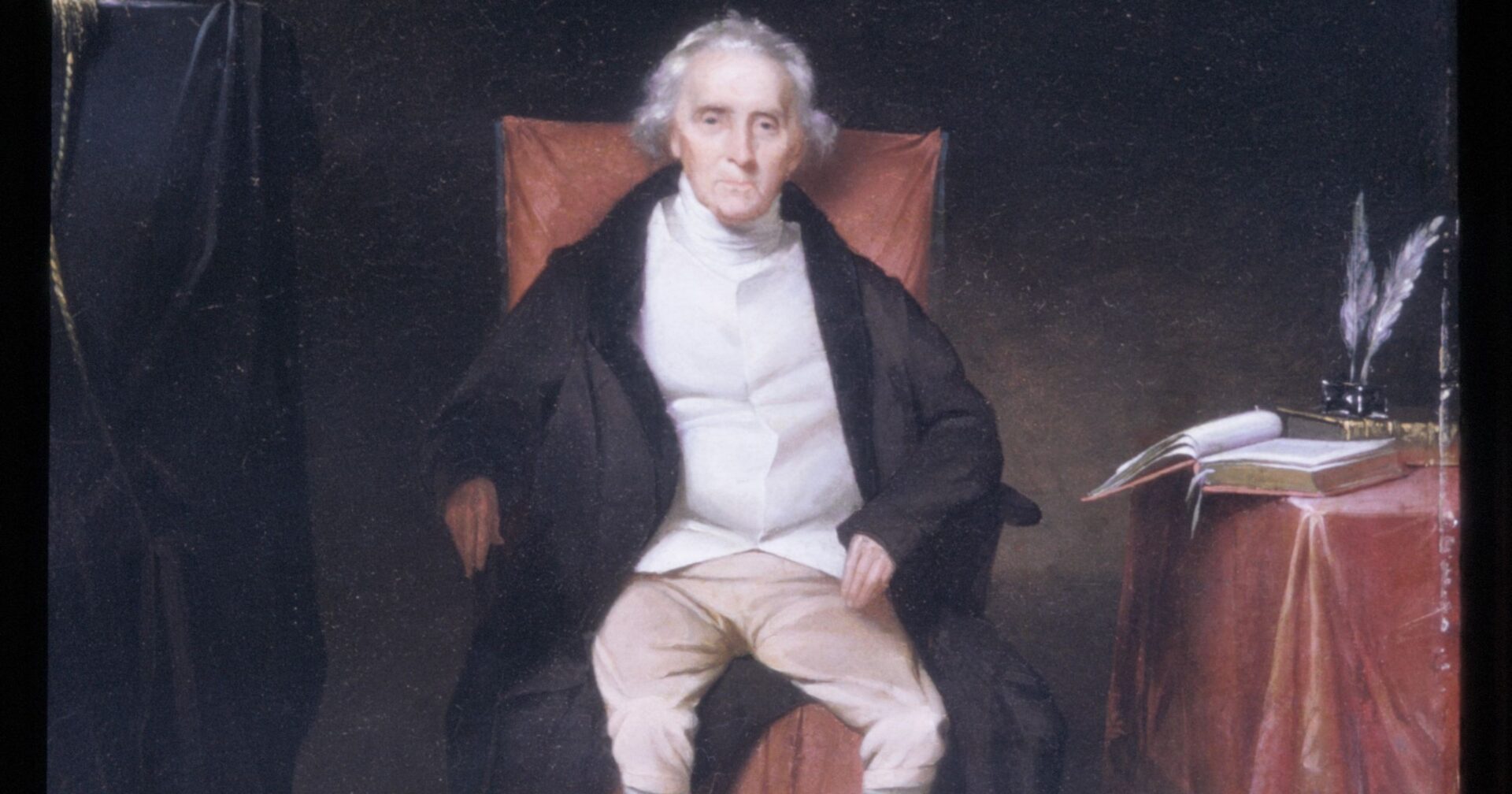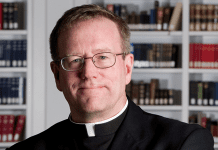Every 4th of July, citizens of the United States of America everywhere celebrate Independence Day, commemorating the adoption of the Declaration of Independence and separation from British rule. The Continental Congress had actually voted to approve a resolution of independence on July 2nd and declare the Thirteen Colonies a new nation, the United States of America. However, it would not come until two days later that the Declaration of Independence was drawn up, revised by the Continental Congress, and officially signed. Were any signers of the Declaration of Independence Catholic?
Of the 56 total signatories of the Declaration of Independence, only one was Catholic: Charles Carroll. Carroll was born in September 1737 to a wealthy Annapolis, Maryland family. He was raised Catholic and educated in Jesuit colleges in Maryland and France before finally studying law in Paris and London. In 1765, he returned to Maryland as an educated man to take over the family estate. He began adding “of Carrollton” to his signature as a way to distinguish him from his father and cousin with similar names.
In 1774, Carroll was approached by Benjamin Franklin who asked for his help in gaining the assistance of the Canadian government for the impending Revolutionary War. While not successful, his work gained him an appointment to the Continental Congress where he advocated early and often for an armed resistance against the British on the Board of War. Although Carroll was not present for the independence vote on July 2nd, he was present for the signing of the Declaration of Independence, making him the only Catholic signatory of the historical document.
When it came time for Charles Carroll to write his signature, he went to the document on a desk near John Hancock and simply wrote “Charles Carroll,” before returning to his seat. One of the 56 signatories, who was prejudiced against his Catholic Faith, jested that Carroll risked nothing by signing because there must be many men who share his name in the Thirteen Colonies, and if caught the King of England would not execute him without proof he was the same that signed the Declaration. Charles Carroll simply rose once again, took the pen from John Hancock, and added “of Carrollton” to his signature.
His cousin, John Carroll, was also the first Bishop and Archbishop in the United States in Baltimore. Not only was Charles Carroll the only Catholic signer of the declaration, he was also the last living surviving signer, dying in Baltimore at the age of 95 in 1832. Today he is remembered for his influential role in moving the Thirteen Colonies and Continental Congress towards independence from British rule.
Photo credit: Public Domain via Wikimedia Commons
















Wow, thanks for yhe interesting piece; good to know. Keep up the good work!
Proud to be Catholic,
Rich Behrens
I think if I’m not mistaken he also donated the land which capital hill sits on,
He was also a large contributor to the first railroad company the Baltimore & Ohio. At the laying of the cornerstone he said he felt this would have more impact than the signing of the Declaration! (There is a plaque at the museum that states this) He was also the wealthiest signer and longest living of the signers!
Your article is not correct, the document was not signed on the 4th of July. The First Continental Congress approved the Declaration of Independence on July 4, 1776. Most of them later signed the Declaration of Independence on August 2, 1776 (they had ratified approval but not signed on July 4th, as often portrayed, but paintings of them signing are as of August 2, 1776.)
Come visit the Charles Carroll House on St.Mary’s Parrish property and then enjoy the Historic city
of Annapolis,Md. See the Naval Academy, St.Johns College and of course the stunning yachts and
sailboats on the Chesapeake Bay !!! Feast yourselves on Maryland Blue Crabs and Shuck our Bay
Oysters! We LOVE VISITORS !!!!!!
He was also a slave owner, therefore he is in hell right now!
Alen: When did God put you in charge of deciding who goest to hell? You will be judged some day so don’t be so judgmental. Let Our Lord be the Judge of all of us. No need for us to judge such an American patriot and founding father of our Great Nation.
As Billy Graham said,
“It is our job to love, the Holy Spirit’s job to convict, and God’s job to judge.”
I think that perhaps we Christians sometimes get this out of order. “Judge not, lest ye be judged.”
(Matthew 7:1; Luke 6:37).
Soli Deo Gloria!